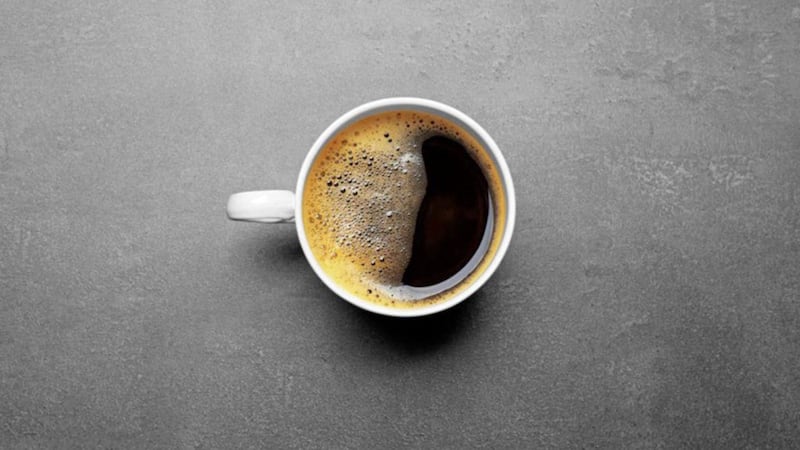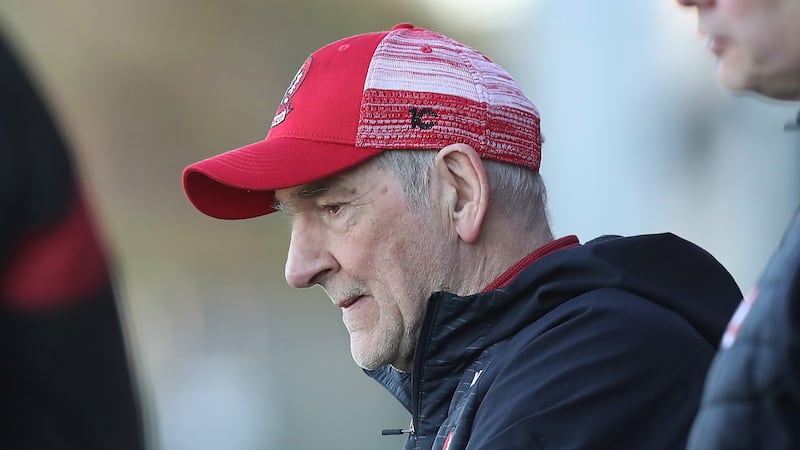LORCAN Martin’s evening job is as a football coach. Now manager of Edendork, he was involved with Fermanagh and Tyrone U21s before joining Mattie McGleenan during his spell in Cavan.
His day job, for a while in 2017 and 2018, was as the elite team salesman for Good Health Company, which sells Glanbia products among others.
He provided protein and supplements to the elite of the Irish sporting world, from the Irish rugby team through most inter-county setups.
Bar the odd player such as Dublin vegan Paul Mannion who would take plant-based proteins instead of dairy, Martin says many county teams are all taking the same.
The standard list of supplements consists of the following:
- Whey protein, used in a shake or porridge
- Casein, a slow-release protein taken before bed
- Creatine, to gain muscle and enhance strength, and is a naturally-occurring product in the human body
- Beta-alanine, which aids in the production of carnosine, a compound that plays a role in muscle endurance in high-intensity training
- Multi-vitamins
- ZMA (zinc magnesium aspartate), which aids the production of red blood cells
- Amino energy or amino acids, again naturally occurring and the equivalent of “two cups of caffeine”
Through the GPA, inter-county players are educated on the dos and don’ts of supplement use.
Caffeine, though, has become one of the big players.
Naturally, it’s associated with coffee. It appears an innocent substance, with no age restrictions and the ability to buy it over the counter.
The World Anti-Doping Agency (WADA) had banned high concentration levels of caffeine from 1984 but removed the ban in 2004 because performance-enhancing doses were found to be “almost indistinguishable” from normal consumption.
It remains on the WADA watchlist and athletes’ caffeine levels are still actively monitored for patters of use.
The current limit equates to around two very large cups of coffee.
The market for caffeine supplement tablets and caffeine-based gels has grown massively in the last decade since first being made popular by the Irish rugby team.
“The vast majority of GAA teams are landing to stadiums now to play a match carrying cups of coffee.
“At half-time in every county setup, you’ll have massive jugs of coffee for the players.”
A recent article by Alan Moore, an Irish-born and Russian-based specialist in sports governance and nutrition, looked at caffeine use in the Premier League.
He noted that only one club had retained the title since 2009 and claimed a source working within a Premier League club told him: “It’s impossible to keep this up season after season. The new stuff, added with caffeine, puts so much pressure on the cardio (vascular) system. Now you put into that painkillers or even anti-biotics (if they’re ill), it’s a minefield.”
Moore himself wrote: “Putting hearts under such pressure season after season, at the pace of the Premier League, is a tragedy waiting to happen.”
Virtually harmless in normal quantities, caffeine overdose can compromise the cardio-vascular system and potentially cause heart problems even in young, healthy athletes.
Lorcan Martin insists that through the correct education programmes and with the guidance of team doctors and nutritionists that GAA inter-county panels are informed of the dangers and are using caffeine responsibly.
“If a county player tests positive for a banned substance they’re suspended but that also comes back on the team doctor and the nutritionist, whose professional career is then in jeopardy,” he said.
“I’ve [had] county teams who won’t buy anything off me unless they get the certificate off me that their professional life won’t be ruined by a player taking something incorrectly.
“The county players are ok, they’re being educated on what to take.”
One of the simpler methods employed is to avoid caffeine during the week, and only take it as and when required in a sporting sense.
Too much at the wrong time is not only potentially harmful, but also negates the intended impact of its use.
While there may be a placebo effect, controlled trials show that even under ideal conditions, caffeine enhances physical performance “by only about one to three per cent”, according to Jack James, a Professor of Psychology at Reykjavik University.
There will always be a question over whether the use of caffeine as a supplement is ethically right, as underlined by the fact that WADA had banned high intake and still monitors it.
As Paul Kimmage tweeted in 2017 in the aftermath of a doping ban for Kerry footballer Brendan O’Sullivan: “To all my GAA friends: Wake up and smell the caffeine.”
O’Sullivan, one of four GAA players to have returned a positive sample since 2009, was given a 21-week ban after he inadvertently consumed a banned substance that was contained in a fat-burning supplement he’d purchased online.
He had bought it himself from a vitamin shop in Cork City, primarily as a caffeine supplement because he felt “the caffeine gels provided by the Kerry county board didn’t agree with him”, it was reported at the time.
Sport Ireland said he “bore no significant fault or negligence”.
The dangers of caffeine had been noted a year earlier when two young Irish cyclists needed treatment after ingesting caffeinated substances at a race in Cork.
The riders, aged 14 and 16, fell ill and one had to be taken to hospital, leading to Cycling Ireland warning against under-18s taking caffeinated supplements.
Lorcan Martin deals with almost every GAA inter-county team, as well as the major setups in Irish rugby, through their nutritionists.
He says there are counties that will not buy a product off him unless it comes with a certificate saying that it is legal in the elite sporting sense.
Inter-county players are being educated. Club players trying to mimic their peers and their heroes are not.
What they see are six packs on Instagram and product placement, leading to a potentially lethal lack of regulation among lower-level amateur players in Ireland.
What they’re looking for is a quick fix that will help them catch-up.
At a time a decade ago, the anecdotal theories were that many players were using a pre-workout drink that was banned in the UK in 2012 after a stimulant in it, DMAA (dimethylamylamine), was linked to high blood pressure, headaches, vomiting, stroke and even a death.
There is perhaps greater understanding now but there is also greater temptation and impatience.
Everyone wants to be ripped and there are so many products on the market that it’s hard to know what is what.
The dangerously unregulated online market of contaminated sports supplements, driven by a rise in body dysmorphia among young Irish men, is being widely tapped into.
“The problem is boys going buying stuff online and they don’t know what they’re taking,” says Martin, who also advises against caffeine-loaded pre-workout drinks that spike the heartrate.
“They’ll say ‘big Andy in the gym told me to get this’, but big Andy’s not running 11km over 60 minutes in a football match. Andy’s lifting 120kg twice and grunting about it whereas you’re hitting your anaerobic zone, your aerobic zone, you’re changing direction, speed, heartrate.
“No company has made a supplement for GAA or soccer or rugby or any team-based sport. They can’t.”
For the ordinary club player, legality is not the issue here. They won’t be drugs tested before a Sunday evening league game in front of three men and a dog.
Safety is the concern.









